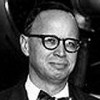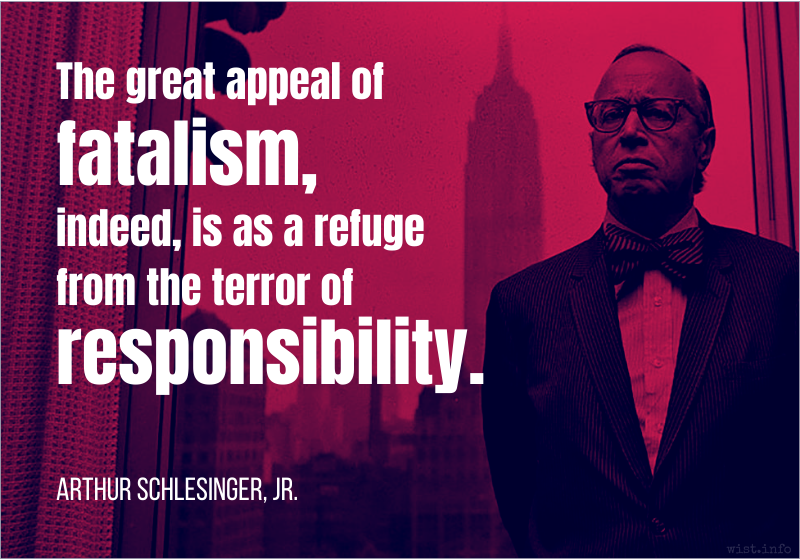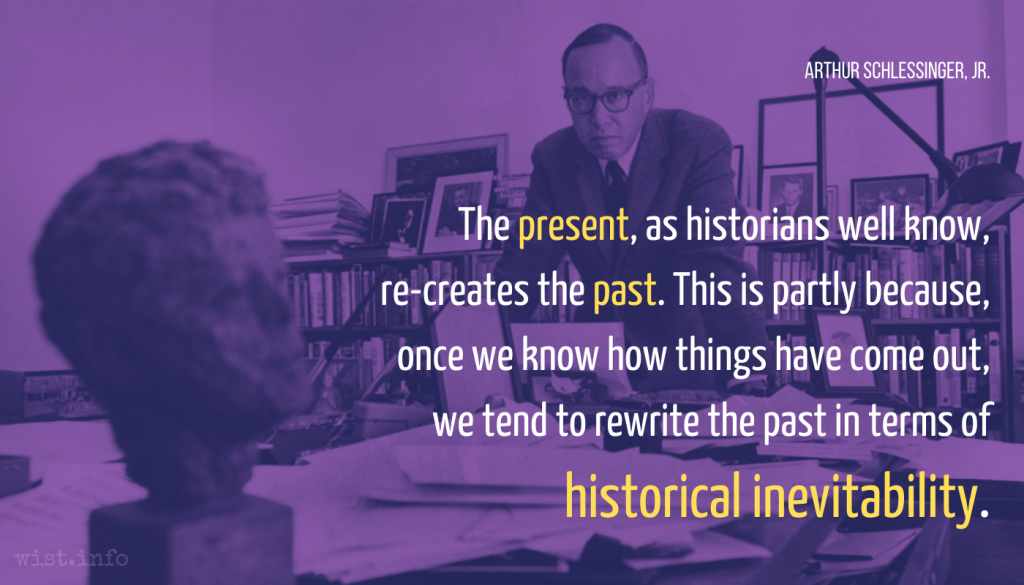What higher obligation does a President have than to explain his intentions to the people and persuade them that the direction he wishes to go is right? Politics in a democracy is, at the end, an educational process.
Quotations by:
Schlesinger, Arthur
If we are to survive, we must have ideas, vision, courage. These things are rarely produced by committees. Everything that matters in our intellectual and moral life begins with an individual confronting his own mind and conscience in a room by himself.
Brave men earn the right to shape their own destiny.
Arthur M. Schlesinger, Jr. (1917-2007) American historian, author, social critic
“The Decline of Greatness,” Saturday Evening Post (1 Nov 1958)
(Source)
Reprinted in The Politics of Hope, ch. 2 (1963)
The great appeal of fatalism, indeed, is as a refuge from the terror of responsibility.
Arthur M. Schlesinger, Jr. (1917-2007) American historian, author, social critic
“The Decline of Greatness,” Saturday Evening Post (1 Nov 1958)
(Source)
The same phrase is used in the successor essay, "On Heroic Leadership," sec. 2. (1960)
The present, as historians well know, re-creates the past. This is partly because, once we know how things have come out, we tend to rewrite the past in terms of historical inevitability.
Saints can be pure but statesmen must be responsible. As trustees for others, they must defend interests and compromise principles. In politics, practical and prudential judgment must have priority over moral verdicts.
By ideology I mean a body of systematic and rigid dogma by which people seek to understand the world — and to preserve or transform it.
It is this belief in absolutes, I would hazard, that is the great enemy today of the life of the mind. This may seem a rash proposition. The fashion of the time is to denounce relativism as the root of all evil. But history suggests that the damage done to humanity by the relativist is far less than the damage done by the absolutist — by the fellow who, as Mr. Dooley once put it, “does what he thinks th’ Lord wud do if He only knew th’ facts in th’ case.”
The worst error a president can make is to assume the automatic implementation of his own decisions. In certain respects, having able subordinates aggravates that problem, since strong personalities tend to have strong ideas of their own. Civil government operates by consent, not by command; the President’s task, even within his own branch of government, is not to order but to lead.
Arthur M. Schlesinger, Jr. (1917-2007) American historian, author, social critic
The Age of Roosevelt: The Coming of the New Deal, ch. 33, sec. 3 (1959)
(Source)
Political campaigns tend to be exercises in progressive degeneration. The steady increase, week after week, in excitement and strain and weariness produces an oversimplification of issues, an over dramatization of alternatives, a growing susceptibility to extreme and catastrophic statements. Candidates find themselves shouting things in the fall that they would never dream of whispering in the summer.
Arthur M. Schlesinger, Jr. (1917-2007) American historian, author, social critic
The Age of Roosevelt, ch. 33, sec. 8 (1960)
(Source)



